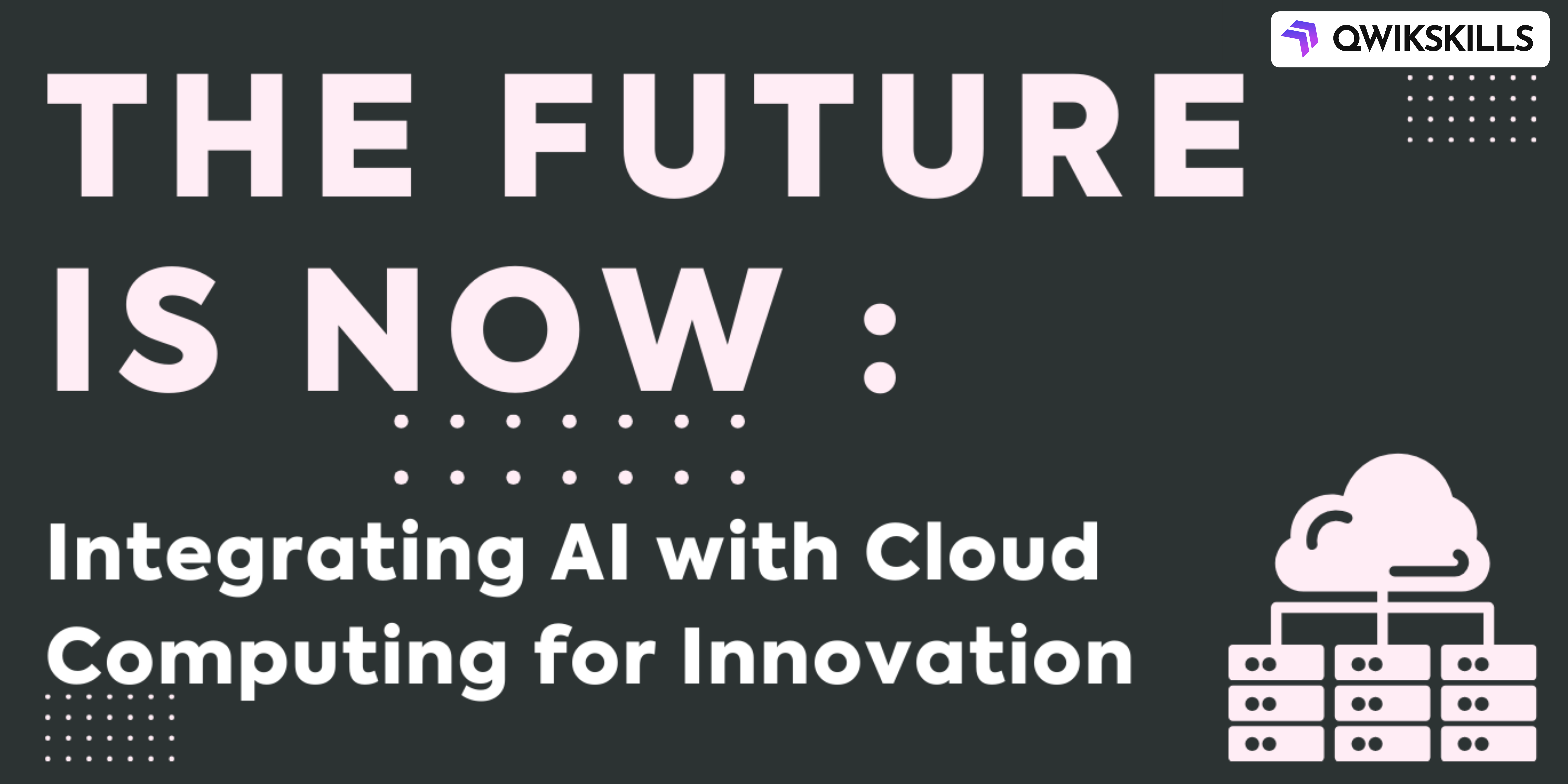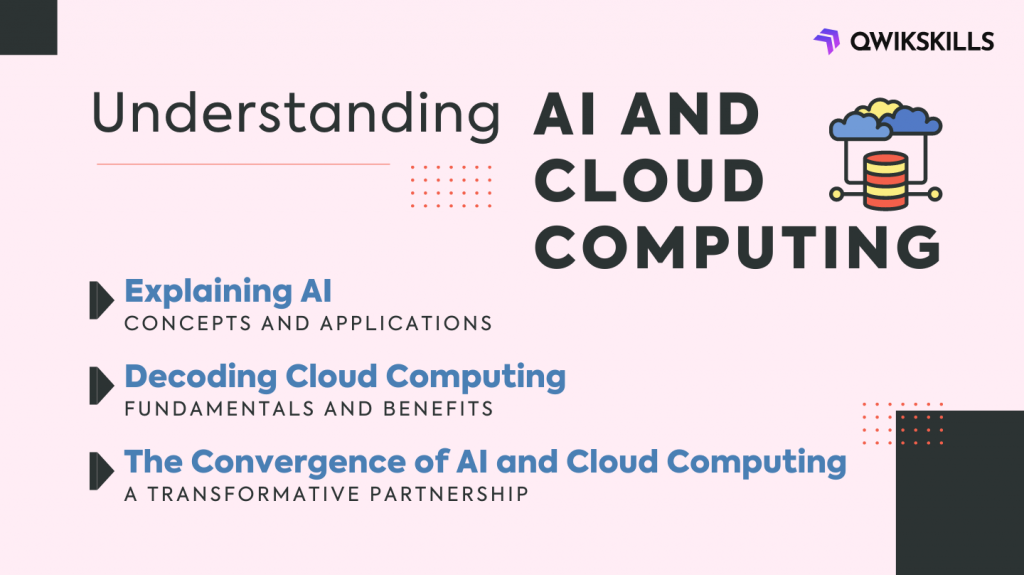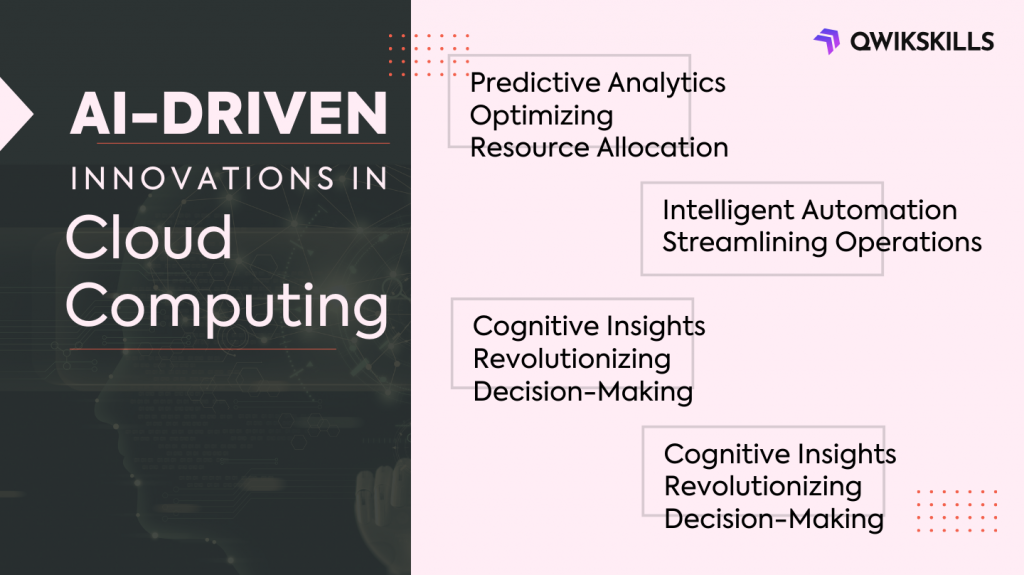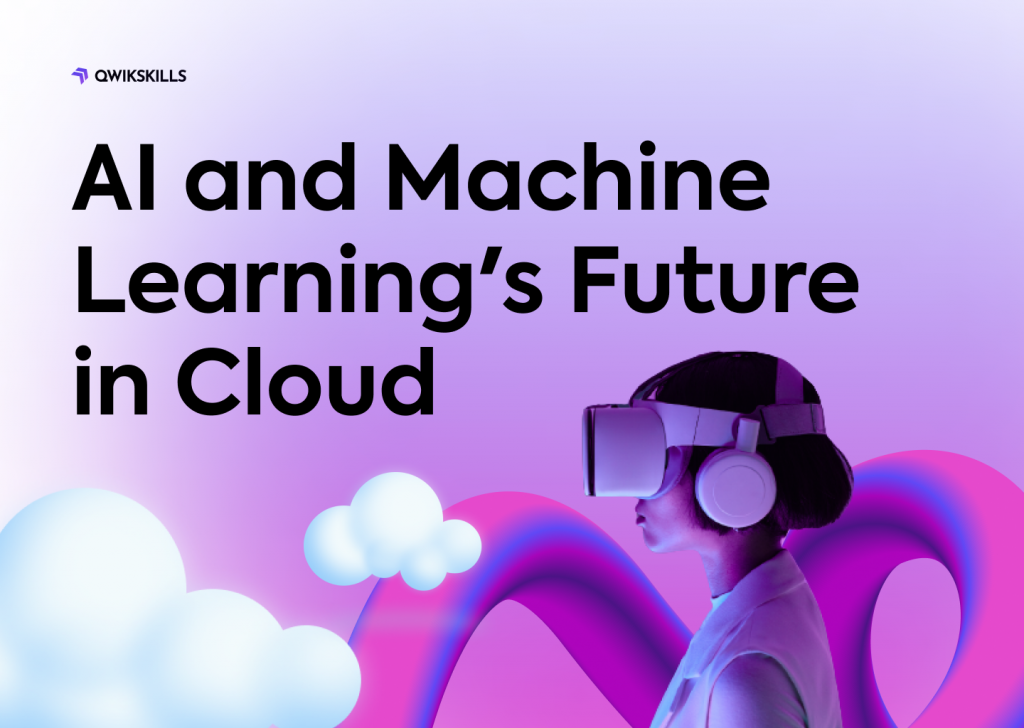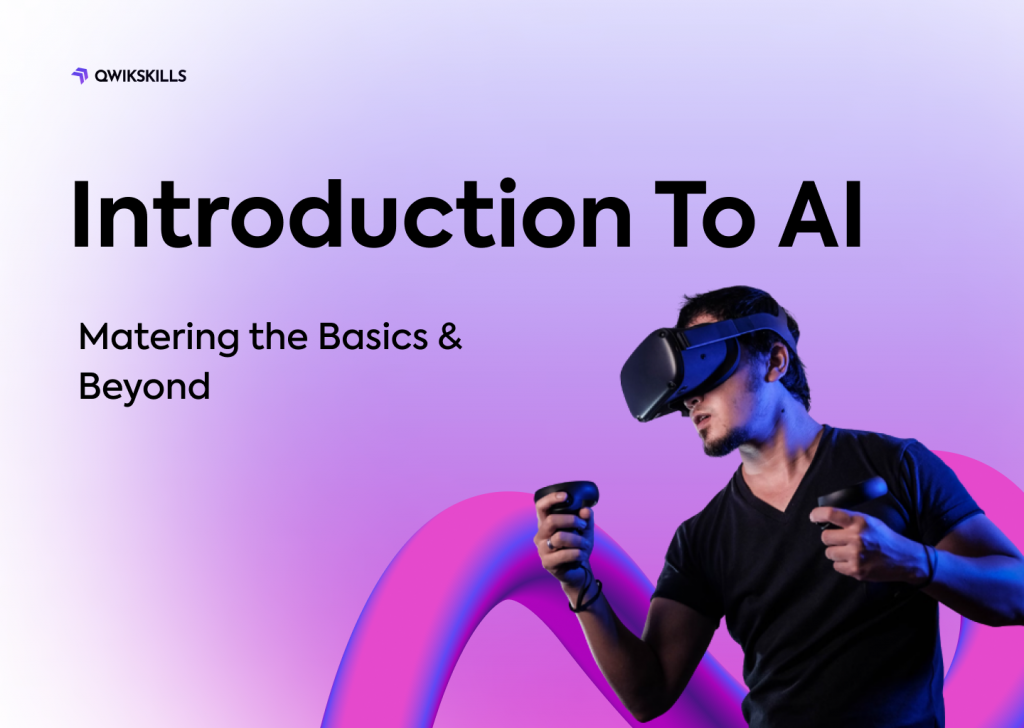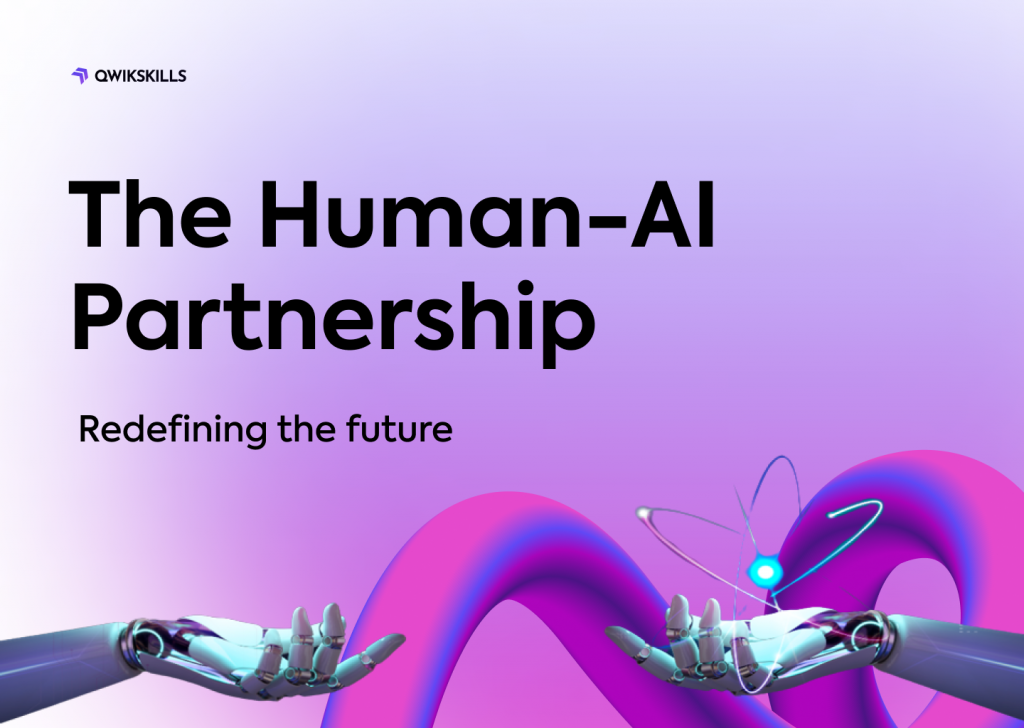In an era where technological advancements are propelling us into uncharted territories, the convergence of Artificial Intelligence (AI) and cloud computing has emerged as a game-changing paradigm. This integration holds the potential to revolutionize industries, reshape conventional processes, and unlock unprecedented possibilities. In this article we will explore the dynamic interplay between AI and cloud computing, shedding light on how this fusion is paving the way for innovation and transformative change. if you want to Master the fundamentals of AI with AI Essentials on QwikSkills.com. Learn key concepts and applications in this comprehensive online course.
Introduction
At the heart of this transformation lies the fusion of AI and cloud computing – two cutting-edge technologies that individually have already had profound impacts on diverse fields. AI, the simulation of human intelligence in machines, has found applications in language processing, image recognition, and even decision-making processes. On the other hand, cloud computing has redefined the way we access and store data, allowing users to access resources remotely and scale services on-demand. By synergizing these technologies, we open up new dimensions of possibilities, propelling us into a future driven by technological innovation.
Understanding AI and Cloud Computing
Explaining AI: Concepts and Applications
Artificial Intelligence encompasses a spectrum of technologies that enable machines to mimic cognitive functions such as learning, reasoning, and problem-solving. From chatbots that offer real-time customer support to self-driving cars navigating complex roadways, AI’s applications are diverse and evolving. Natural language processing, machine learning, and neural networks are among the cornerstones of AI, each contributing to the expansion of its capabilities.
Decoding Cloud Computing: Fundamentals and Benefits
Cloud computing, on the other hand, revolutionizes how businesses and individuals utilize computing resources. Rather than relying on local hardware, cloud computing offers scalable resources over the internet. This elasticity empowers organizations to optimize costs and improve efficiency by only paying for the resources they use. The benefits extend beyond cost efficiency to include seamless collaboration, remote accessibility, and data redundancy.
The Convergence of AI and Cloud Computing: A Transformative Partnership
The integration of AI and cloud computing is where the true magic happens. AI requires massive computational power and vast datasets for training models, while cloud computing provides the ideal infrastructure for these resource-intensive tasks. This synergy enables AI developers to access the required resources on-demand, democratizing access to AI capabilities and fostering innovation across industries.
Advantages of Integrating AI with Cloud Computing
Scalability and Resource Management
One of the primary advantages of integrating AI with cloud computing is scalability. The cloud’s ability to rapidly allocate resources allows AI applications to scale up or down based on demand, eliminating the need for large upfront investments in hardware.
Enhanced Processing Power and Speed
AI algorithms demand immense processing power, especially during training phases. Cloud platforms offer powerful hardware configurations that accelerate the training process, reducing the time required to develop sophisticated AI models.
Accessibility and Remote Collaboration
Cloud-enabled AI applications can be accessed from anywhere, facilitating remote collaboration among teams. This is particularly advantageous in today’s interconnected world where professionals often work across geographical boundaries.
Data Storage and Management Efficiency
The marriage of AI and cloud computing also addresses data storage and management challenges. Cloud platforms provide secure and scalable storage solutions, ensuring that the vast amounts of data required for AI training are managed efficiently.
Navigating Challenges in AI-Cloud Integration
Data Security and Privacy Concerns
The integration of AI and cloud computing raises valid concerns about data security and privacy. As data is transferred between AI applications and cloud servers, the risk of unauthorized access and data breaches increases. Implementing robust encryption and access controls is crucial to mitigate these risks.
Latency and Network Dependencies
Latency, the delay between sending and receiving data, can impact the real-time performance of AI applications hosted on the cloud. Applications that require instant responses, such as autonomous vehicles, demand low-latency environments to operate effectively.
Compatibility and Integration Complexities
Integrating AI models with cloud infrastructure can be complex, especially when dealing with diverse software frameworks and data formats. Ensuring seamless integration requires a deep understanding of both AI and cloud technologies.
Mitigation Strategies for a Seamless Collaboration
To overcome these challenges, a holistic approach is required. This involves adopting security best practices, optimizing network configurations to minimize latency, and employing middleware that simplifies AI-cloud integration. Regular audits and updates are essential to maintain a secure and efficient ecosystem.
AI-Driven Innovations in Cloud Computing
Predictive Analytics Optimizing Resource Allocation
Predictive analytics powered by AI can forecast resource usage patterns, enabling cloud providers to allocate resources optimally. This minimizes waste and enhances the efficiency of resource allocation.
Intelligent Automation Streamlining Operations
AI-driven automation enhances cloud infrastructure management by automating tasks such as scaling resources, provisioning instances, and managing security protocols. This results in reduced human intervention and increased operational efficiency.
Cognitive Insights Revolutionizing Decision-Making
By analyzing vast datasets in real-time, AI generates insights that drive informed decision-making. Cloud platforms facilitate the processing of these datasets, enabling businesses to make data-driven decisions with greater accuracy.
Personalized User Experiences through Machine Learning
AI-powered personalization is transforming user experiences. By leveraging cloud resources, applications can analyze user behavior and preferences to deliver tailored content, products, and services.
Cloud-Empowered AI Applications
Smart Cities: Urban Management and Sustainability
AI-enabled smart cities leverage data from sensors and devices to optimize urban infrastructure, traffic management, waste disposal, and energy consumption. The cloud’s scalability and storage capabilities are instrumental in managing and analyzing the massive volumes of data generated in urban environments.
Healthcare: Precision Medicine and Patient Care
In healthcare, AI assists in diagnosing diseases, predicting patient outcomes, and developing personalized treatment plans. Cloud computing ensures that medical professionals can access and analyze patient data securely and efficiently.
Finance: Algorithmic Trading and Fraud Detection
Financial institutions harness AI and cloud computing to develop algorithmic trading strategies and detect fraudulent activities in real time. Cloud-based solutions offer the computational power needed for quick analysis of financial data.
Manufacturing: Predictive Maintenance and Process Optimization
AI-powered predictive maintenance enhances manufacturing efficiency by predicting equipment failures before they occur. Cloud platforms host AI models that analyze equipment data, enabling manufacturers to optimize maintenance schedules and reduce downtime.
Future Trends in AI and Cloud Computing
Edge Computing: Extending Capabilities to the Edge
Edge computing involves processing data closer to the source, reducing latency and improving real-time decision-making. This trend will enable AI applications to operate effectively in environments with limited connectivity, such as remote industrial sites and autonomous vehicles.
Quantum Computing: Reshaping AI Possibilities
The emergence of quantum computing has the potential to revolutionize AI by solving complex problems at unprecedented speeds. Cloud providers are already exploring quantum cloud services, ushering in a new era of AI capabilities.
Ethical Considerations: Ensuring Responsible AI Development
As AI’s influence grows, ethical considerations become paramount. Cloud-based collaborations can facilitate the development of responsible AI systems that adhere to ethical guidelines, ensuring fairness, transparency, and accountability.
Continued Evolution: A Glimpse into Future Possibilities
The integration of AI with cloud computing is an evolving journey, with new possibilities waiting to be explored. As technology advances, we can anticipate even more innovative solutions that reshape industries and human experiences.
Frequently Asked Questions (FAQs)
Q: How does the integration of AI and cloud computing benefit innovation?
A: The integration enhances scalability, processing power, and accessibility, fostering innovative solutions.
Q: What challenges might arise when integrating AI with cloud computing?
A: Challenges include data security, latency, compatibility, and integration complexities.
Q: What are some AI-driven innovations within cloud computing?
A: Examples include predictive analytics, intelligent automation, cognitive insights, and personalized experiences.
Q: In which sectors are AI and cloud computing making a significant impact?
A: Sectors include smart cities, healthcare, finance, and manufacturing, each with unique applications.
Q: What are some future trends to watch in AI and cloud computing?
A: Trends include edge computing, quantum computing, ethical considerations, and the continued evolution of technology.
Conclusion
In closing, the integration of AI and cloud computing represents an unparalleled opportunity to push the boundaries of innovation. This fusion amplifies scalability, accelerates processing power, and enhances accessibility, fostering a future where the unimaginable becomes attainable. As we embrace this transformative journey, the synergy between AI and cloud computing propels us toward a horizon where possibilities are limited only by our imagination. The future, indeed, is now.
Ready to dive into the future of technology? Explore AI and cloud computing’s transformative synergy at QwikSkills. Unlock innovation, sharpen skills, and embrace limitless possibilities today. Let’s shape tomorrow together!

